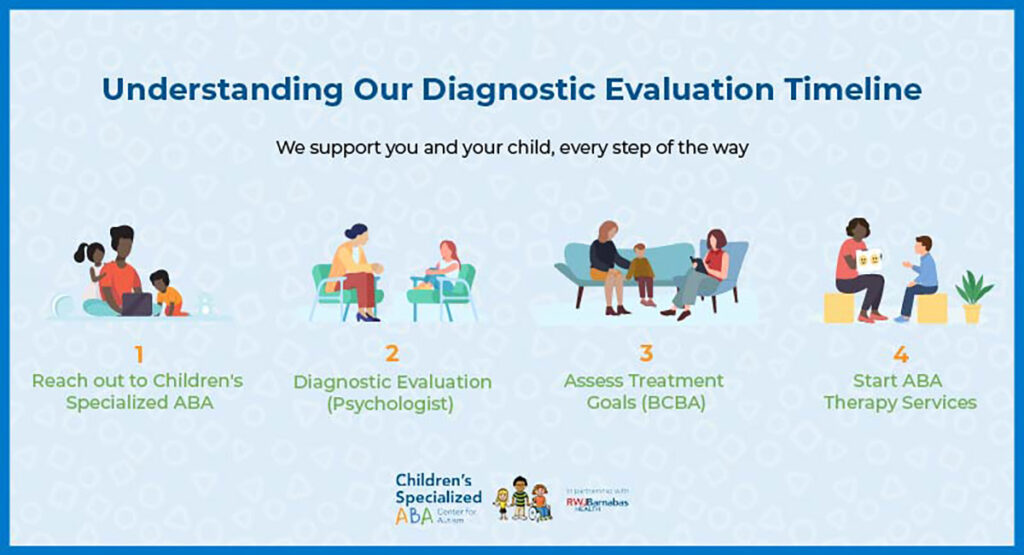Every child develops at their own unique pace, but sometimes delays or differences in development can signal underlying challenges. For parents, identifying the early signs of autism is an essential step toward getting the support their child needs. At Children’s Specialized ABA, our mission is to empower families with the knowledge and resources to help their children thrive.
Early Signs of Autism in Children
Autism spectrum disorder (ASD) affects how children communicate, interact, and behave. While signs of autism in children can vary widely, understanding the early indicators can help parents take action as soon as possible.
Common early signs of autism include:
- Delayed speech or language skills, such as limited use of words or phrases
- Difficulty making eye contact or engaging in social interactions
- Repetitive behaviors, such as hand-flapping or lining up toys
- Intense focus on certain objects or activities while showing limited interest in others
- Difficulty responding to their name or appearing unaware when spoken to
- Sensitivity to sensory input, such as becoming overwhelmed by lights, sounds, or textures
If you notice any of these behaviors in your child, it’s important to consult with a professional for further evaluation. Early intervention can make a significant difference in helping children develop critical skills and reach their full potential.
What Is the Autism Diagnosis Process?
The autism diagnosis process involves multiple steps to evaluate your child’s developmental milestones and behaviors. Here’s a general outline of what to expect:
Initial Concerns
If you notice early signs of autism, discussing these concerns with your child’s pediatrician is the first step. You may be asked a series of questions about your child’s development and behavior.
Developmental Screening
Your pediatrician may perform a developmental screening to evaluation whether your child is meeting typical developmental milestones. This can help determine if further evaluation is needed.
Comprehensive Evaluation
If concerns persist, a comprehensive autism diagnosis process will be conducted by specialists, such as a developmental pediatrician, psychologist, or speech-language pathologist. This evaluation includes in-depth observations, caregiver interviews, and standardized tests to evaluate your child’s communication, social, and behavioral skills.
Diagnosis
Once the evaluation is complete, the professionals will determine whether your child meets the criteria for an autism diagnosis. They will also recommend next steps, including therapy options and supports tailored to your child’s needs.
Our Diagnosis Evaluation Process
Our diagnostic evaluation process is structured to ensure families receive the appropriate guidance, diagnosis, and individualized treatment plan for their children.
What to Expect During the Diagnostic Evaluation Process
During the diagnosis evaluation process, we utilize various assessment tools and techniques to ensure a holistic understanding of each child’s abilities and challenges, including:
- Cognitive and developmental evaluations
- Language and communication evaluations
- Behavioral observations
- Parent interviews and questionnaires
- Adaptive functioning assessments
This stage is conducted by a licensed psychologist and focuses on evaluating whether a child meets the criteria for autism spectrum disorder (ASD). We deliver precise autism diagnostic evaluations that serve as a foundation for effective support.
Levels of Support
If the child is diagnosed with autism, the psychologist determines the level of support required, categorizing it into three levels based on the child’s needs:
- Level 1 – Requires support for challenges with social skills and routines but has some independence.
- Level 2 – Requires more substantial support due to difficulties with communication, repetitive behaviors, and adaptability.
- Level 3 – Requires very substantial support for severe challenges in communication, behavior, and daily living.
This evaluation lays the foundation for the subsequent treatment process.
Understanding the Timeline
To help families understand the process, here’s a step-by-step timeline:
- Referral/Concerns Arise
- Diagnostic Evaluation (Psychologist)
- Assessment of Treatment Goals (BCBA)
- Start of ABA Therapy Service
Contact Children’s Specialized ABA Today
If you’re concerned about potential signs of autism in your child or have questions about the autism diagnosis process, reach out to Children’s Specialized ABA today. Our team of caring professionals specializes in helping families understand and address their children’s developmental needs.
With early evaluation and intervention, your child can thrive in ways you may not have thought possible. Contact us online or call 201.979.0772 today to learn more about our autism evaluations and personalized therapy programs. Together, we can help your child unlock their full potential and create a brighter future.




